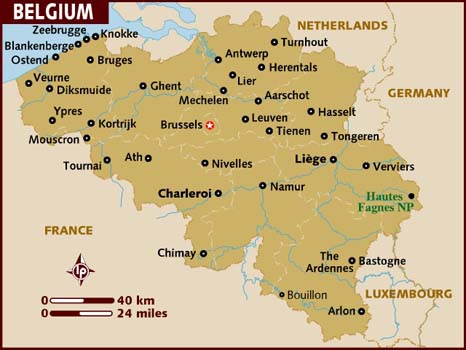Belgian PM Charles Michel resigns
December 20, 2018 | Expert Insights

Charles Michel, Belgium’s prime minister, has resigned following a failed attempt to win parliamentary backing for his minority administration, deepening the country’s political crisis.
Mr Michel announced his resignation following a decision by opposition parties to table a no-confidence motion in his government.
Background
Charles Jean Michel is a Belgian politician who became the country’s youngest Prime Minister of Belgium in more than 150 years when he took over the position in October 2014. He was born in Namur, Wallonia and attended the University of Amsterdam before becoming a lawyer in Belgium. He was first elected to the Chamber of Representatives in 1999 and was made the Minister of Development Cooperation in 2007. After the June 2009 regional elections, Michel was part of a group demanding the MR leader Didier Reynders to step down. After the party suffered further losses in June 2010 federal elections, Reynders eventually stepped down.
After the 2014 federal elections, Michel became the co-formateur in the 2014 Belgian government formation. Initially, CD&V kris Peeters was expected to be the prime minister. When on 7th October 2014 an overall agreement was reached between the four parties that formally declared that Michel was to lead the government. In December 2018, a political crisis emerged over whether to sign the Global Compact for Migration. Michel’s coalition partner N-VA, which originally supported the compact, reversed course to oppose it.

Analysis
On 18th of December 2018, Charles Michel tendered his resignation to the King. Rather than wait for the vote later this week, Mr.Michel announced that he would immediately submit his resignation. His resignation increases the likelihood of early elections, with the country already set to go to the polls in May.
The royal palace said after the two spoke King Philippe would withhold from making a decision now. The king is expected to consult with advisers and political leaders on how to proceed.
The resignation was due Mr Michel’s inability to as prime minister after the Flemish nationalist N-VA party quit his government earlier this month over its opposition to a UN migration pact. Mr Michel had hoped to carry on as leader of a minority administration of liberals and conservatives but stoked the ire of opposition parties by ruling out a confidence vote for his rejigged administration.
Following the departure of the New Flemish Alliance (N-VA), the largest of the coalition government’s four parties, Michel had appealed to the federal parliament to back a minority administration until the country held its general election next May.
Mr Michel had appealed for a “coalition of good will” in parliament to see his government through to the May vote, but a day of parliamentary debate in Brussels led him to conclude this was impossible. “I have understood that my appeal has failed to convince,” he said. “I have to respect and take note of this situation. I take the decision to resign and my intention is to go to the king immediately.”
Mr Michel’s decision marks the bitter end of a government that represented a political experiment for the linguistically divided country. The country is now braced for a snap election in January. The head of Michel’s party said the opposition had rejected the government’s “fair offer” in order to secure a political scalp.
Michel was subsequently asked by the King to be a caretaker prime minister, with reduced authority, while parliament seeks to construct a new alliance of parties that can take the reins of power. It is expected that the talks with parties will take several days but that an election will be held in the new year.
Assessment
Our assessment is that economic mismanagement is one of the key reasons why governments fail across the world. We understand that this is the case in Belgium as well. We feel that Charles Michel was unable to defend his government’s policies and the current state of the Belgian economy to the public and party leaders which has resulted in political unrest. We also believe that Belgium may choose to go in for an early election.








Comments